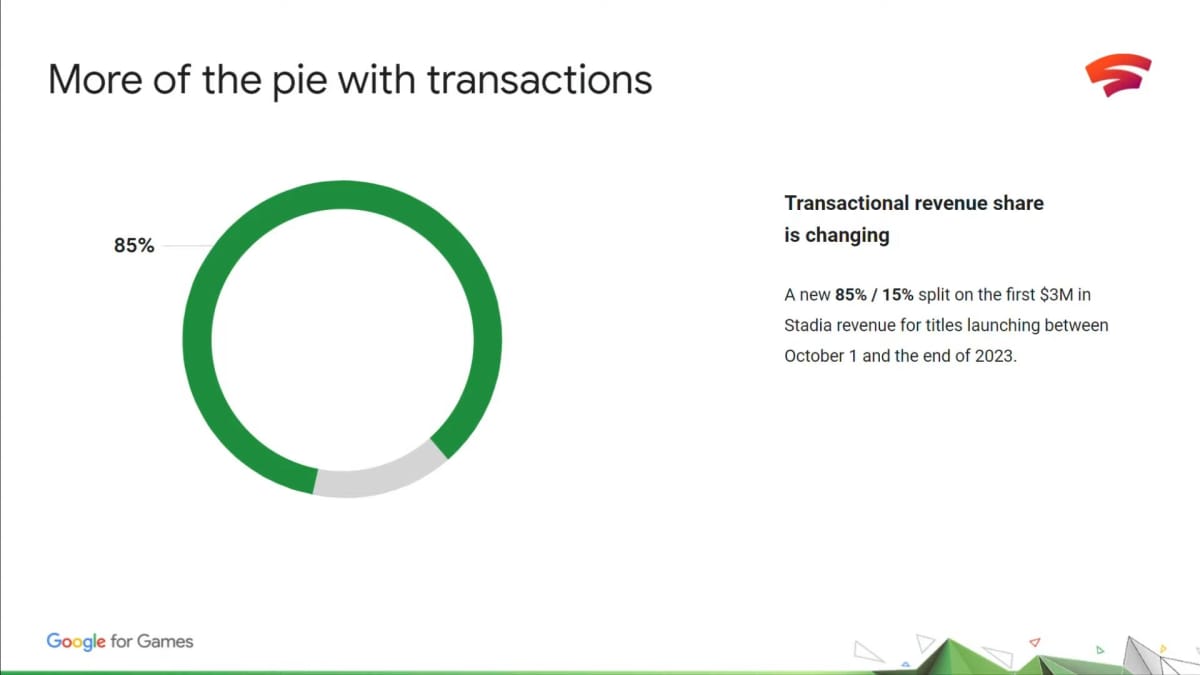Google's Stadia has been the target of a lot of speculation since they closed their internal development efforts earlier this year, but for now, Google is continuing to push hard with the platform, opting instead to focus on third-party partnerships. In this vein, Google has announced several initiatives to make publishing on Stadia more appealing to developers.
The headliner here is that starting on October 1st, through December 31st, 2023 Stadia will be operating on an 85% developer revenue share, with Google taking only 15%. This compares more favorably with options like the Epic Games Store and is half the going rate on stores like Steam, PlayStation, and Google Play. This only applies up to $3m, after that it goes to a traditional 70/30 split. For developers, however, that first three million can be huge, and especially with Stadia's smaller market share, it means they are more likely to recoup their investment in the port and make money from it. This will apply throughout the life of any game that launches during this period, including add-on content.
Of course, a lot of users on Stadia just pay the monthly Stadia Pro fee and don't buy other games, Google also had an announcement. 70% of Stadia Pro subscription revenue will now be shared with partners, a figure that Google calls 'industry leading' and it will be based on an engagement basis. This is based on Session Days, which means that if the user logs in and plays your game once a day or five times in a day the payout is the same. However, if they come back 5 days in a row, that would be five different session days. They said this was "to keep it as fair as possible" across a variety of game types.
Another new initiative is an affiliate link system for partners. This system works by using the click-to-play system to Stadia Pro, which is a good way to get players to games already. The system works by paying developers $10 if someone following their click-to-play link becomes a paying Stadia Pro subscriber, presumably after the free trial period. This will launch in the first half of 2022 and will pay developers essentially for directing players to their games.
Overall, while there isn't much for players directly here, the fact that this can help developers generate revenue for smaller games it is something that will help the ecosystem as a whole, allowing developers to make more games.







